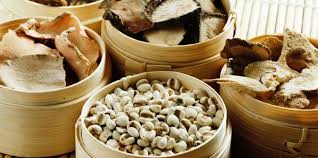If you are about to begin searching for a great acupuncturist or Chinese medicine practitioner, you’ll want to know what to look for, especially if you haven’t visited one before. In every profession, practitioners will vary in their skills, experience and their approach, and some will be more suited to certain people and issues than others.
Generally though, there are a few helpful things to look for when searching for a reputable Chinese medicine practitioner.
Important Factors to Check
AHPRA Registered
In order to practice acupuncture and prescribe Chinese herbs and medicine in Australia, practitioners need to be registered with the Australian Health Practitioner Regulation Agency (AHPRA). This is often displayed on a clinic’s website, but you can look up practitioners on the AHPRA website.
Checking that your practitioner is a registered Chinese medicine practitioner ensures they have extensive training in acupuncture techniques and Chinese herbal medicine to provide safe, expert treatments. To stay registered, practitioners regularly update their knowledge, so you can be assured you will receive the best advice.
Clear Communication
Like any health care provider, it is important that your Chinese medicine practitioner is able to explain everything in a way that is easy to understand. A good practitioner will take the necessary time to explain the details of the treatment, what to expect and the reasons for suggesting a particular treatment.
For example, prior to performing acupuncture, the specialist team at Village Remedies will ensure that the procedure is explained fully and because many people don’t like needles, they will tailor the treatment to your tolerance of acupuncture. Throughout the treatment they will check in with you and your symptoms to ensure you are comfortable and you are improving.
It is also important to receive advice on anything you need to do following treatment at home and that they will happily answer any questions you may have.
Holistic Treatment
The best Chinese medicine practitioners treat the whole person, not just specific symptoms. They will focus treatment on your pain or illness, but also support your overall healing, mental wellbeing and recovery.
In traditional Chinese medicine, stress, sleep and digestion are often discussed as they can be closely linked to issues such as chronic lower back pain. If any of these areas are negatively affected, they will restrict your body’s ability to heal and recover fully.
So be aware that Chinese medicine will include treatment on areas of the body which may appear to be separate from your main concern but be open to the overall holistic approach. Keep in mind however, that even with an overall body approach, your original health problems should improve.
Other Factors to Consider
Specialist Areas of Interest
If you are seeking treatment for a particular reason, such as fertility support, chronic pain, migraines or depression, keep in mind that there are no recognised specialties in Chinese medicine and acupuncture practice in Australia. However, individual practitioners may have a special interest so you may want to ask the question.
Location and Treatment Hours
Make sure your clinic is easily accessible to you and offers times that suit your work and lifestyle. You don’t want the benefits of a relaxing, effective treatment to be undone by a long or stressful commute. If you need after hours or weekend appointments, make sure they are offered.
Cost of Treatments
Find out the costs involved to ensure you can afford what they are offering. See if you can get an idea of how many treatments you may need so you can factor in costs for the long term.
Some private health insurers provide coverage for acupuncture so you may wish to look into this as well.
Styles of Treatment
Chinese medicine has a very long and diverse history and is still evolving today, which means there are several different styles and approaches to acupuncture and Chinese herbal medicine. So, you can have some understanding of the differences, here are some comparisons.
Local vs Distal Acupuncture
The majority of acupuncture treatments can be categorised into either local or distal acupuncture. Local acupuncture is probably what you would expect, where the practitioner will use needles in and around a painful or injured area on your body.
Traditionally, acupuncture was actually performed at distal sites, which basically means ‘distant to the affected area’. These areas are used to stimulate a healing response in the desired area, usually resulting in immediate relief and also reducing the risk of aggravating the irritated area any further.
Chinese Herbal Medicine
Traditional Chinese medicine involved using various raw ingredients, mainly from plants, being tailored for a certain condition. The herbal blend would have to be decocted (heated on a stove to extract the essence) and drunk several times throughout the day. These days, this method is still used and is thought to be the most potent form of consuming herbal medicine, but it’s pretty inconvenient for most people.
Chinese herbs are also available in granule form, where the herbs have already been decocted and then processed into a powder form. To take these herbs, they just need to be added to hot water. The granule form is still able to be tailored specifically to your needs.
Chinese herbs are also available in tablets and capsules and while they are very accessible, they are the least potent form and cannot be modified to suit specific requirements. However, they can still be effective in relieving symptoms.
A registered, experienced Chinese medicine practitioner is just a phone call away and you can soon be on your way to better health.
